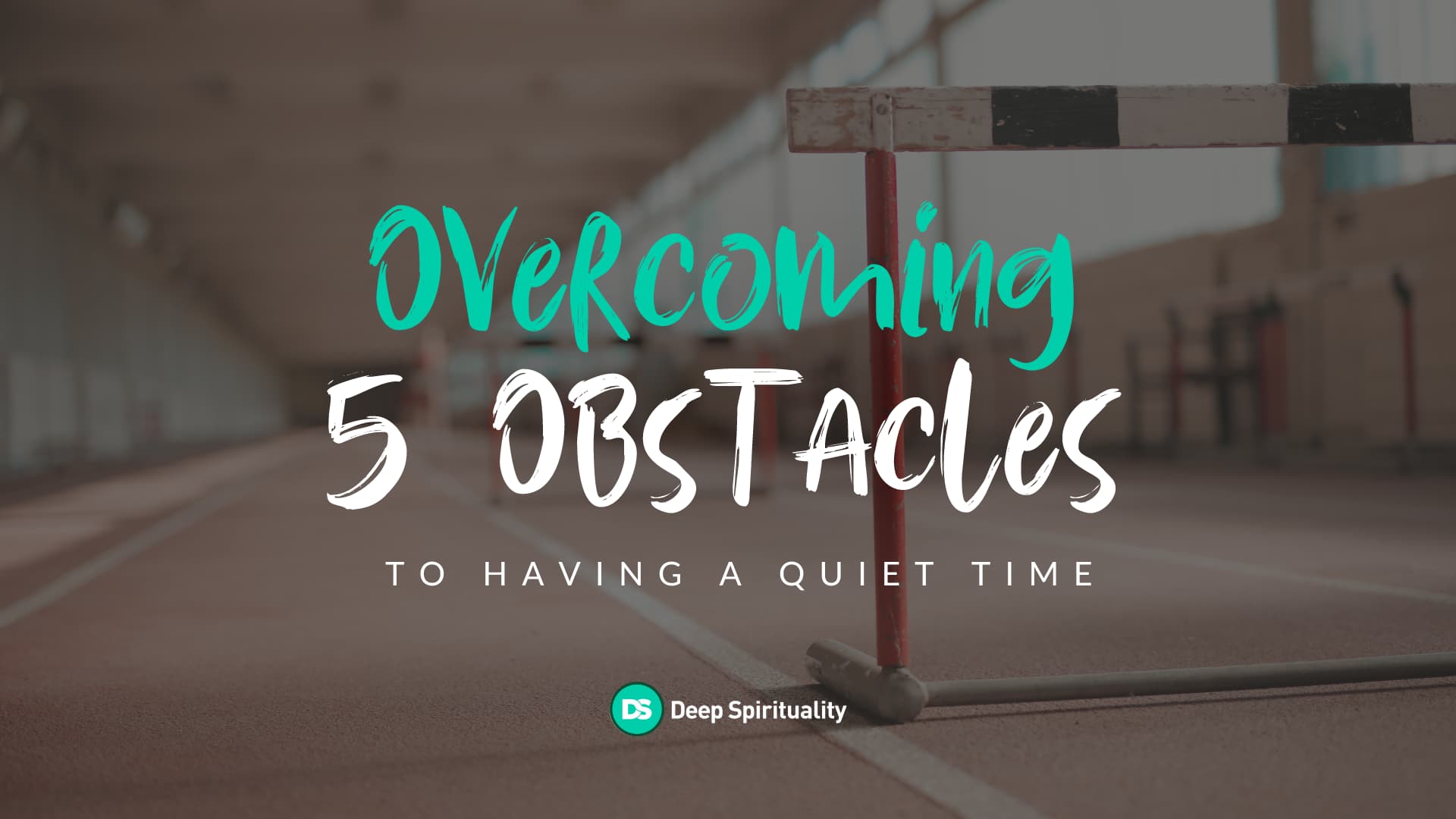In high school, my AP English teacher assigned a summer reading list for every student. It included novels such as John Steinbeck’s’ Grapes of Wrath and T.H. White’s The Once and Future King. I had very little interest in these books, and making my way through them that summer was a tedious grind. I found myself very easily and often distracted.
Later that fall, my favorite NBA player, Magic Johnson, abruptly retired from basketball because he had been diagnosed with HIV. In subsequent months he wrote his autobiography, “My Life,” which I immediately purchased. For the first time ever, I was singularly focused on reading a book cover to cover. I meticulously devoted myself to finishing every page at any free moment I had. I was undistracted and determined to know Magic Johnson’s life and story.
A decade later I would rediscover a similar, but deeper passion to pursue and know someone intimately. This time it was God, and the scriptures shown to me by a couple of college friends captivated me more than any book prior. The more I read the Bible, the more my heart was stirred by its words. This is when I first experienced the beginnings of undistracted devotion to God.
“The seed sown among weeds represents the person who receives the message, but all of life’s busy distractions, his divided heart, and his ambition for wealth result in suffocating the kingdom message and prevent him from bearing spiritual fruit. 23 “As for the seed that fell upon good, rich soil, it represents the hearts of people who hear and fully embrace the message of heaven’s kingdom realm. Their lives bear good fruit—some yield a harvest of thirty, sixty, even one hundred times as much as was sown.”
Matthew 13:21-23 TPT
God desires devotion, not distraction. Too often in my life, I’ve had the divided and distracted heart this scripture describes. Some of “life’s busy distractions” for me include:
- Worries over what I read in the news
- Fear of failure in my job or academic performance
- Stress over my finances
- Not getting the attention and respect I desire from people
- Consternation over difficulty in building relationships
- Nagging guilt from my personal sins
Distractions are like weeds in our hearts that suffocate God’s Word. In order for our quiet time with God to be effective and fruitful, we need to deal with our distractions.
Over the years and with much help from spiritual friends, I’ve learned 5 keys to becoming devoted rather than distracted when I spend time with God. These have helped me continue to build a deep and dynamic relationship with him.
[powerkit_toc title=”Table of Contents” depth=”2″ min_count=”4″ min_characters=”1000″]Find a secluded space
The next morning, Jesus got up long before daylight, left the house while it was dark, and made his way to a secluded place to give himself to prayer.
Mark 1:35 TPT
Many times I’ve claimed to have spent “hours” with God, only to walk away having no greater faith, heart awareness, depth of conviction, nor stronger determination to change than when I first started. Why? I was so easily distracted during my quiet time by physical surroundings, smartphone alerts, and passers-by. My quiet time was anything but quiet, nor secluded. It was distracted and diminished by all the interruptions I allowed. I didn’t first start out determining a secluded space to have my quiet time.
Jesus went to a secluded place so he could be undistracted as he prayed to God. It’s possible for us to do the same thing, even if we live in a heavily populated area. Do you have a location secluded from distractions to spend quiet time with God?
Check out our comprehensive quiet time guide for some great ideas about how to find or create a sacred space.
Give instead of just taking
The next morning, Jesus got up long before daylight, left the house while it was dark, and made his way to a secluded place to give himself to prayer. [36] Later, Simon and his friends searched for him, [37] and when they finally tracked him down, they told him, “Everyone is looking for you— they want you!” [38] Jesus replied, “We have to go on to the surrounding villages so that I can give my message to the people there, for that is my mission.” [39] So he went throughout the region of Galilee, preaching in the Jewish synagogues and casting out demons.
Mark 1:35-39 TPT
In the above passage, we see that the purpose of Jesus’ quiet time was to “give” himself to God in prayer – not just to “take.” Some of the ways I find myself “taking” from God are using him to get emotional comfort, solutions to a problem, or intellectual insight. Approaching God in this self-centric way does not leave me devoted to him and his plans for my life.
When Jesus finished praying, he was surrendered and devoted to God’s mission for his life. We can imitate Jesus’ prayer life by vulnerably expressing our emotions to God (Hebrews 5:7), and then surrendering those emotions to him and embracing his direction for our lives (Matthew 26:36-44).
- Is the purpose of your quiet time to give your heart to God for him to influence, move, and change it? Or do you only take from him – use him to feel a certain emotion, get an intellectual insight, find a solution to an inconvenient dilemma, or to check off a religious duty?
Deal with “thought distractions”: people, problems and panic
You will keep in perfect peace all who trust in you, all whose thoughts are fixed on you!
Isaiah 26:3 NLT
Whenever my busy thoughts were out of control, the soothing comfort of your presence calmed me down and overwhelmed me with delight.
Psalm 94:19 TPT
We break down every thought and proud thing that puts itself up against the wisdom of God. We take hold of every thought and make it obey Christ.
2 Corinthians 10:5 TLV
Reading the Bible is the primary way in which we hear God speaking to us (2 Timothy 3:16-17). I have often read the Scriptures without hearing what God was actually saying because the voices of people, panic, or problems drowned out God’s voice. I call these “thought distractions” – extraneous thoughts that pop in my mind while I read the Bible and leave no room for God.
You can remove thought distractions by writing them on another page of your journal or a note on your phone, to attend to only after you’ve finished reading the Bible. Praying about these extraneous thoughts later reveals more truth about why I am so worried about them. For example, sometimes sins like pride and selfishness drive my stress-filled thoughts.
- What are the thought distractions that impede your ability to hear God when reading and praying?
- How many of these thought distractions are focused on people, problems, and panic rather than God?
Devoted hearts are honest hearts
Day and night, Your hand kept pressing on me. My strength dried up like water in the summer heat; You wore me down. 5 When I finally saw my own lies, I owned up to my sins before You, and I did not try to hide my evil deeds from You. I said to myself, “I’ll admit all my sins to the Eternal,” and You lifted and carried away the guilt of my sin. 6 So let all who are devoted to You speak honestly to You now, while You are still listening. For then when the floods come, surely the rushing water will not even reach them. 7 You are my hiding place. You will keep me out of trouble and envelop me with songs that remind me I am free.
Psalm 32:4-7 Voice
The psalmist makes it clear that we cannot become devoted to God as long as our hearts are deceitful and weighed down with hidden sin. There have been times I’ve been apathetic, fallen asleep, turned to the news, sports, social media or online shopping in the midst of a quiet time. In those moments I’ve blamed fatigue, stress about circumstances, and pressure from responsibilities for my lack of spiritual interest in God. Yet underlying these superficial reasons were deeper spiritual issues I ignored: the strength-sapping effects of hidden sin, nagging guilt, and unresolved emotions.
The times I’ve experienced renewed enthusiasm and reignited passion for God came only after being completely honest with God. This also came with the help of spiritual friends helping me identify the sins and areas in which I was resistant to embracing truth.
- Do you go into your quiet times honest and vulnerable about hidden sins you’ve held onto?
- How do you think your honesty or dishonesty is affecting your devotion to God?
True devotion leads to loving action
10 Ezra had devoted his life to studying the Law of the Lord, to practicing it, and to teaching all its laws and regulations to the people of Israel.
Ezra 7:10 GNT
Devotion is not an emotion or religious performance. I’ve often mistaken religious commitment for real devotion to God. We learn from this brief window into Ezra’s life that his devotion to studying the Word of God was inseparable from his passion to practice it and teach it to others. In short, true devotion should compel us to take action to help other people.
Too often we claim we are devoted to God because we have quiet times, yet we are blinded to the fact that most of our quiet time was spent thinking, feeling, and considering only ourselves. When this is the case, we end up living out powerless religion rather than a dynamic relationship with God with real spiritual impact on others. It’s no wonder that when Jesus finished spending time with God, he was compelled to preach, teach, change and heal the lives of others (Mark 1:35-39).
If we walk away from a quiet time not having decided to take any specific action to pursue what God is most passionate about – which includes loving and saving others (Luke 19:10) – then we’ve only fulfilled a static religious duty. Dynamic devotion to God is characterized by tangible action.
- What personal change are you studying out in Scriptures and asking God to help you make, that will lead to loving others more deeply?
- Do you leave your quiet times with greater faith and determination to change the lives of others for the better?
Devotion to God is a daily battle because it is a decision that must be made and renewed each day. The man or woman devoted to God will be known not by how many minutes were spent in a quiet time, but by the lives they change because of the faith and power overflowing from their connection with God (John 15).
Explore more:


Newsletter
The Chemistry Lab
by Russ Ewell
A weekly spiritual newsletter about wonder, discovery, and the creative journey of walking with God.
"*" indicates required fields
"*" indicates required fields




